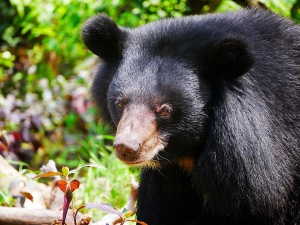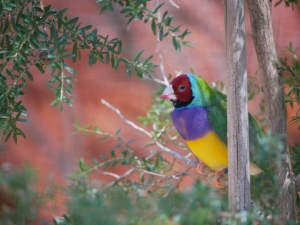One in four living things on the planet are endangered. A significant cause of species becoming endangered is habitat destruction, which is typically at the hands of humans for development of agricultural land, infrastructure, and business or home.
In the US, the Endangered Species Act, signed in 1973, was the first law of its kind in the world, intended to prevent extinction of species. And it’s been working—99% of species protected under it have not gone extinct. For example, the bald eagle once dwindled to just over 400 pairs but can now be found in all lower 48 states and Alaska with around 9,700 pairs!
Globally, the International Union for Conservation of Nature (IUCN) is responsible for tracking what species are vulnerable, threatened, or endangered. And that includes types of trees, plants, fish, corals, mammals, birds—you name it. It’s a good reminder that endangered species are not just the iconic “good-looking” mammals we’re so familiar with, like polar bears and elephants. It also includes the scaly-foot snail, common skate, saiga, papyrus wisp, and rosewood.
Generally, humans can and should be more mindful of our impact on all living things. We need strong policies and laws—from local to national—but we also need to enforce them, strengthen them when necessary, and maintain them (meaning no rollbacks, especially when there’s an inkling of progress). But laws are not enough, we also need conscientious businesses and we need C-suite sustainability professionals to guide and advise. We need advocates to keep the conversations moving to raise awareness. We need to consider our individual impacts at home and at work.
Why it matters:
It’s actually quite simple: the web of life, with all its intricacies, is what allows us to live life as we know it today. From providing food and medicine to keeping waterways clean and maintaining ecological connectivity, all species are integral in our collective planetary survival.
How can you help?
Consider the impact you have where you live. What would this place look like if humans weren’t there? If you have a yard or property, consider planting native shrubs and trees and letting wildflowers and grasses do their thing—grow! This will provide a haven for local species to thrive. If you have balcony or terrace, add a bird feeder or flowers for the creatures that fly. Live in an apartment building? See if building management would be open to creating a green roof.

listed as vulnerable
Alternatively, do you absolutely love a certain species, like the snow leopard or leatherback sea turtle? Donate money to nonprofits that are actively engaged in restoration and advocacy work. Big-name nonprofits are great for generating awareness, but I like to find groups that have boots on the ground, working with governments and communities to promote coexistence and protective policy.
What to have more of an impact? Consider where you work. What decisions or impact can you have there? Can you encourage your staff to purchase bird-friendly coffee? Or can you ensure your company sources only from sustainable or repurposed brands/goods? Does your employer have a sustainability plan? Get one started if not! If you work for a large company or a retail chain—where it’s not as easy to change whole systems—your impact could be writing to executives and policymakers with what kinds of changes you’d like to see. The more they hear from you, the more they will know that this is important to the company or to the people they represent.
In this post, I mentioned habitat loss as significant cause to the growing number of endangered species worldwide. But another cause is the wildlife trade. More on that to come.

IUCN-listed as near threatened


This is a beautiful and a very level-headed post, Maggie. I like that you’ve given so many different options to choose from to live sustainably.
It’s important to remind people that it’s okay if you can’t do EVERYTHING. Just start with one thing and do that, even that can make a world of difference.
LikeLike
Thank you for the kind words, Saurab! You’ve hit the nail on the head–we can’t all do everything! But there are so many of us humans in the world, that if we all pitch in here and there, we can make a big difference for the planet.
LikeLiked by 1 person